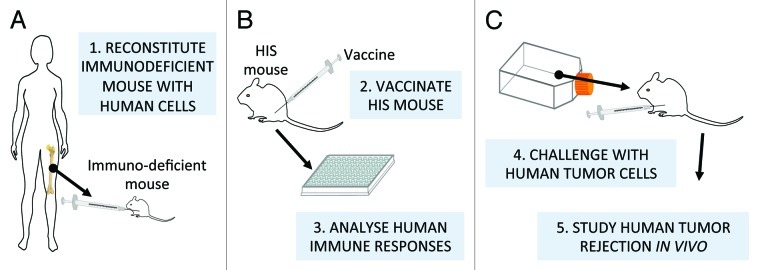Figure 4. Human immune system-engrafted (HIS) mice for validation of oncoantigen vaccines. Human hematopoietic stem cells implanted in severely immunodeficient mice give rise to a (more or less) functional human immune system (A) that can be subsequently vaccinated with human tumor antigens to investigate and manipulate in an experimental context human anti-tumor immunity, (B and C). Note that most current protocols use human progenitors from cord blood for the engraftment, hence the final step shown in the figure, i.e. challenge with human (adult) tumor cells, could entail MHC allogeneic interactions. Human immune system-engrafted mice are undergoing continuous improvements, because the interactions of xenogeneic human and murine molecules is not always functional. Novel models include additional genes encoding for human MHC, to humanize antigen presentation, or human species-specific cytokines to enhance human cell long-term survival and functional differentiation.63

An official website of the United States government
Here's how you know
Official websites use .gov
A
.gov website belongs to an official
government organization in the United States.
Secure .gov websites use HTTPS
A lock (
) or https:// means you've safely
connected to the .gov website. Share sensitive
information only on official, secure websites.
